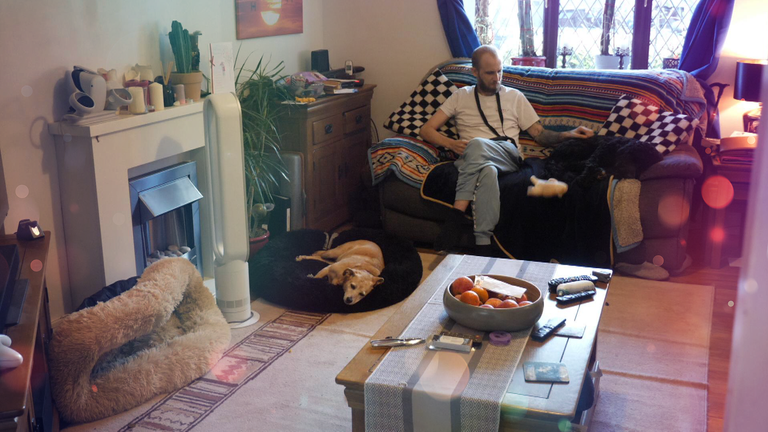— How living funerals are changing the way we deal with death
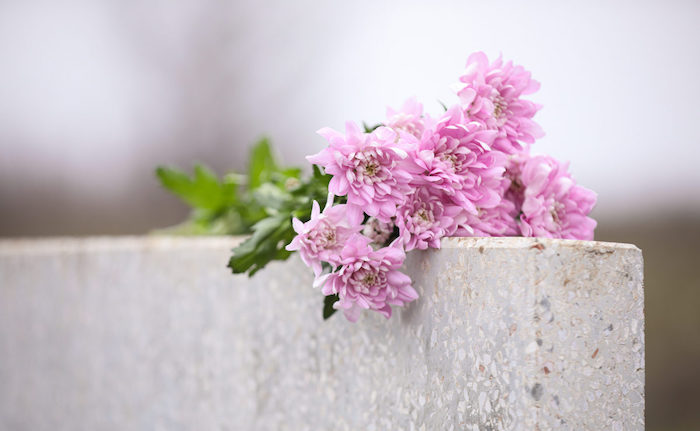
I watched my own dad die when I was 25, and it made me realise how awkward people get around the subject. I wanted to see if living funerals – both those for the terminally ill and those who are not – are opening up how we talk about death.
I am lying in a coffin, the lid gently placed on top. A warm light filters through the woven fibres, as a meditation chant reverberates around the room.
“Welcome to your funeral,” death doula Emily Cross said, moments earlier.
A photograph of me and my husband sits between two flickering candles, with confetti from our wedding scattered in front of the frame. I wriggle, trying to relax but coffins, it turns out, aren’t designed for comfort.
Meditating on my own death isn’t how I spend most Tuesday evenings. But like many who seek out Emily’s services, I am intrigued by the idea of confronting my own mortality.
“Everyone comes with a different reason,” Emily, 35, says when I ask her about the kind of people who usually attend. Sometimes they are dying, sometimes they are just curious about the service.
I watched my own dad die when I was 25, and it made me realise how awkward people get around the subject. I wanted to see if living funerals – both those for the terminally ill and those who are not – are opening up how we talk about death.
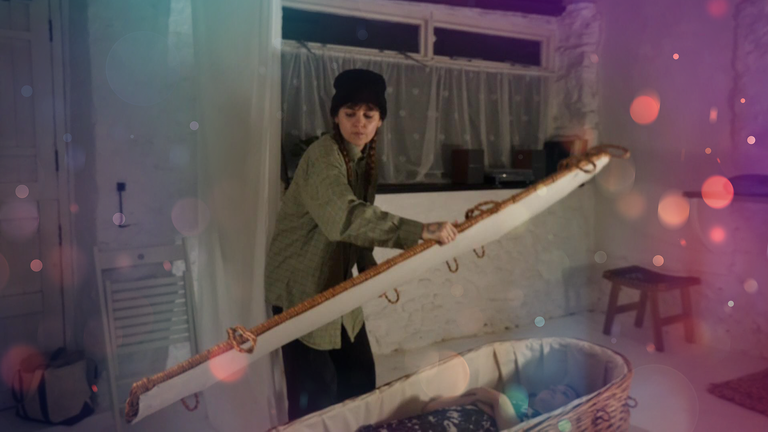
Dad’s funeral was beautiful and cathartic – 500 people packed out a church to celebrate him. I remember wishing he had been there to see how deeply loved he was.
Emily’s living funeral is a more solitary affair, and you don’t need to be dying to do it. To start, she plays haunting music and asks participants to look at a photo of themselves, imagining they are dead. Then they are asked to visualise their bodies shutting down before being “brought back to life” in a coffin.
I only go through part of the ceremony but it’s enough to bring up a raft of emotions. Lying inside the cosy coffin, I remember how shocked I felt seeing Dad in his – that such a larger-than-life figure could fit into such a small space. It’s a relief when the lid is lifted, the room comes back into view and Emily helps me stand.
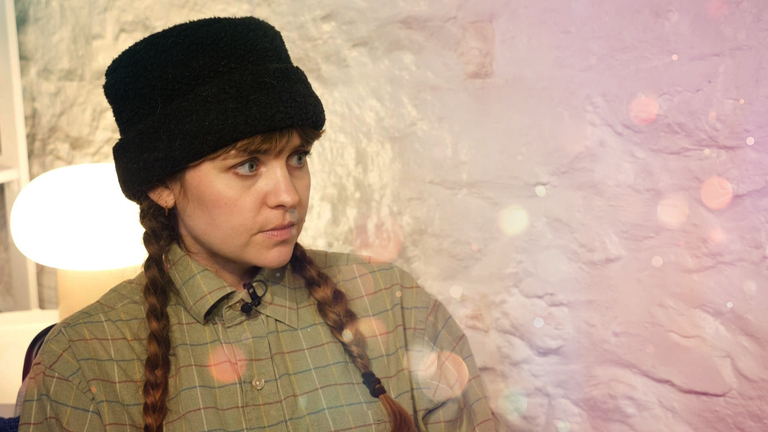
Earlier this year, Kris Hallenga – one of the founders of breast cancer charity CoppaFeel who shares her own cancer journey with her 145,000 Instagram followers – threw herself, what she called, a FUNeral.
Kris sent out invitations shaped like coffins. Inside each was a test tube of tequila and a letter explaining her intention.
Guests were invited to sign a cardboard replica of her coffin and childhood footage was projected around Truro Cathedral in Cornwall. Dawn French did the eulogy in character as the Vicar of Dibley, while Kris gave a speech and sparkled in a glittery jumpsuit.
Instagram This content is provided by Instagram, which may be using cookies and other technologies. To show you this content, we need your permission to use cookies. You can use the buttons below to amend your preferences to enable Instagram cookies or to allow those cookies just once. You can change your settings at any time via the Privacy Options.
For Robert Hale, he decided to hold his own living funeral when he found out he had just months to live. When the 33-year-old aerospace engineer was told by doctors that his leukaemia was terminal, he decided to organise a “happy send-off commemorating my life”.
“The doctors were honest,” he said, his dogs curled up on the sofa next to him. “They said straight from the start, I didn’t have a good prognosis.”
With the support of his parents, he arranged to hold his living funeral at a farm park near his home in Gloucestershire.
“I used to go there as a child for the parties and thought it would be a good place,” he said.
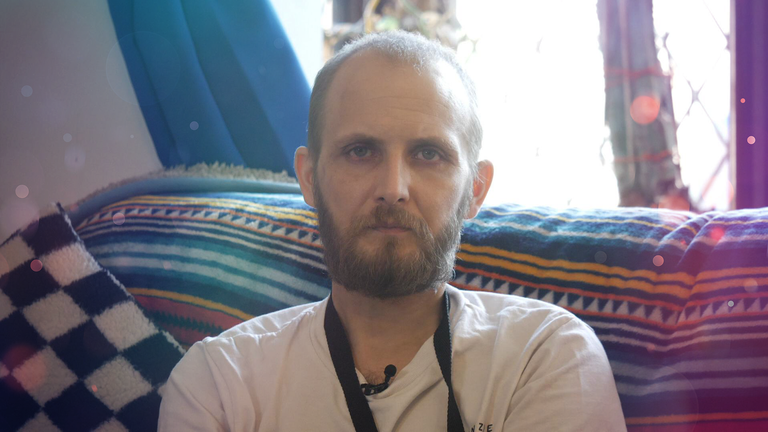
He was surprised when hundreds of friends and family turned up on the day. At one point, he snuck off to take on what he calls the “death slide” – despite being fitted with a catheter – only to be greeted by 50 people cheering him on at the bottom of the steep drop.
“It was overwhelming,” he said. “I had friends that I hadn’t seen for years. I’d always told myself that I would catch up with them next year, because I thought I had plenty of time.”
Now, he says he can “go without leaving anything unsaid”.
Rob didn’t flinch when he talked about his own death and shared candid accounts of his final year on Instagram. He said he wanted to be honest about what was ahead of him.
“The closer I get to the end, the more important those things become because other people are facing it,” he said.
Rob died three weeks after we spoke – but his parents, Caron and Nigel, told me they wanted his story to be told.
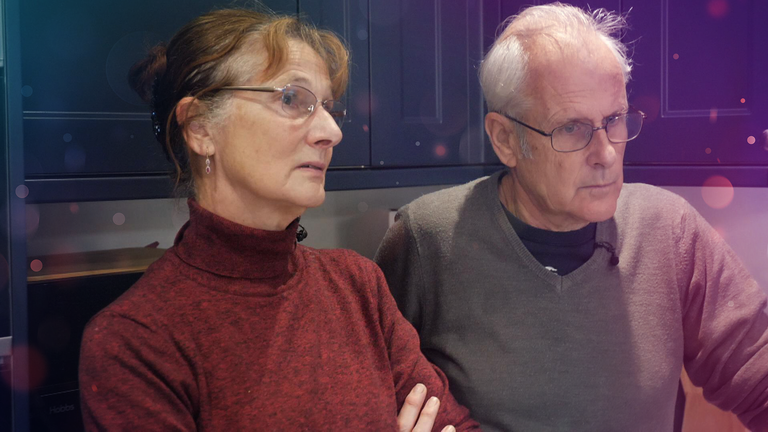
End-of-life ceremonies are nothing new – in some cultures, they have been around for hundreds, or even thousands, of years. But their exact roots are difficult to track.
Before a member’s death, the Native American tribe the Lakota Sioux of South Dakota repair relationships, make amends, and distribute family heirlooms. A similar tradition became popular in Japan in the 1990s as the older generation sought to remove the financial burden of funerals from their children.
In 2019, the Hyowon Healing Centre in South Korea began offering free-living funerals to the public as a way of tackling high suicide rates in the country, which in 2016, was almost double the global average.
Participants, who were usually completely healthy, would undergo a meditation, often while in a coffin or under a shroud, and come face to face with their own mortality and the realities of death.
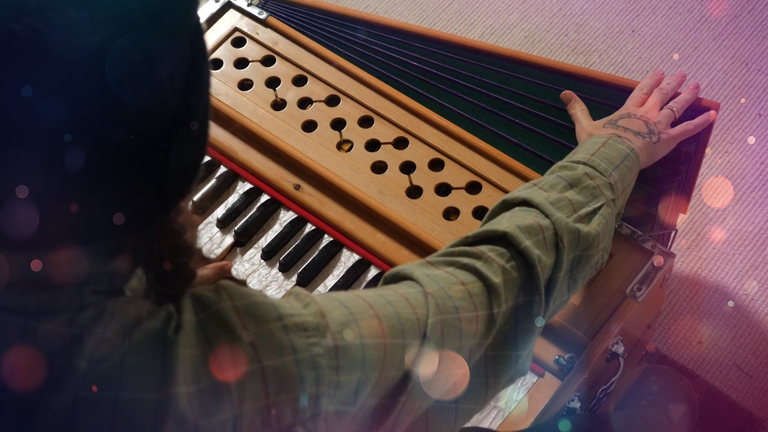
Death doula Emily says she was inspired by these Eastern practices. Situated in a Dorset village, her Steady Waves Centre is something of an anomaly on this quiet, rural high street. Originally from the US, she says she suspects residents sometimes wonder “what that weird American girl is up to”.
“There’s a [fishing] shop next door, and people just walk in here by accident thinking it’s a tackle shop,” she says, laughing. “I’ll say something like, this isn’t a tackle shop, but do you want to come lay in a coffin?”
So far, no one has taken her up on that offer, she says.
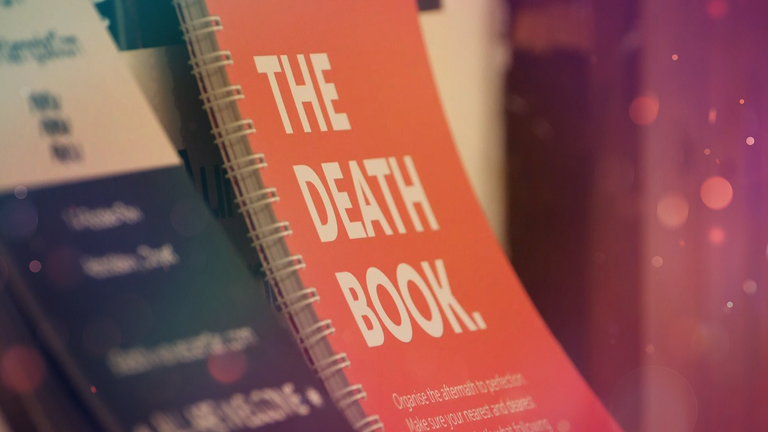
Rachel Bass, a Pagan celebrant, has planned plenty of funerals – including her own.
“I was born with a serious heart condition, so I’ve always been aware of my own mortality,” the 47-year-old says.
Rachel has had several major surgeries for her condition, tetralogy of Fallot, and doctors have always been very clear with her that she is unlikely to “make it to old age”. During the COVID lockdown, her health declined dramatically and she made contact with a hospice to begin planning her end of life – but emergency heart surgery bought her some more time.
But it made her realise if she organised – and attended – her own living funeral, there would be less of a burden on her family.
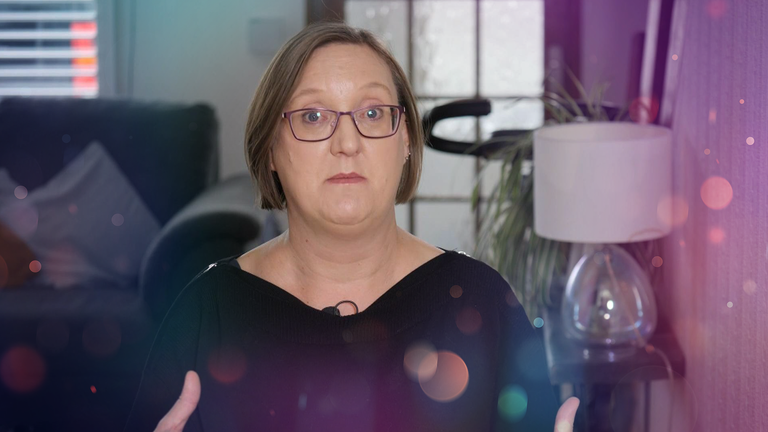
“In the last few years, other problems have arisen,” she says, referring to scarring she has suffered on her liver. “It’s made me more conscious of [death] because I’m only going to go one way.”
Rachel also lost her mum at the age of 24. “For me, it is about accepting that I will not make old bones,” she says.
While we talk, Rachel lightens the mood with laughter, but she does admit that the idea of leaving her 21-year-old son behind makes her emotional. “All I care about is my son, who still relies on me,” she says.
While she doesn’t feel the need to set a date for her living funeral, she has started to plan it. It will be held in the town where she grew up and will feature karaoke and a 1970s-style buffet.
“I’d like to give away my jewellery and certain books at that point too, so I know everything has gone to the right people,” she says.
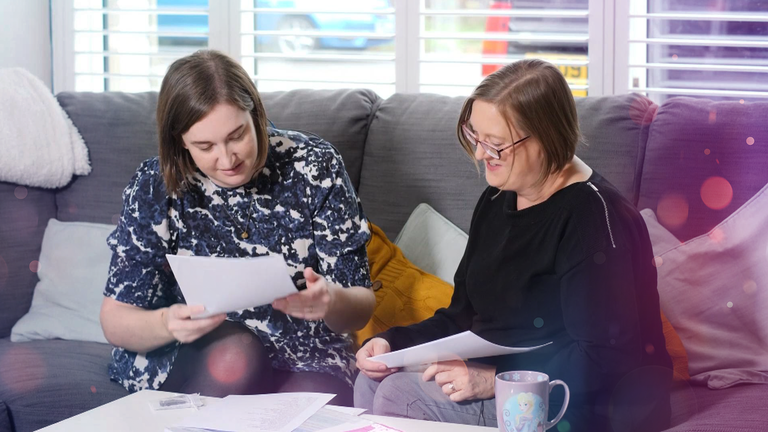
Jane Murray, who manages bereavement support at the Marie Curie hospice in the West Midlands, tells me living funerals are “definitely becoming more popular”.
She says patients often become frustrated planning traditional funerals: “People think – it’s going to be such a good time and I’m not going to be there. That leads to have you ever thought about having it beforehand?”
Kris Hallenga was supported with her FUNeral by Legacy of Lives, a social enterprise that helps with funeral planning.
“We hope it will encourage more people to be open about death and what they want after they die,” says the charity’s chief executive, Rebecca Peach.
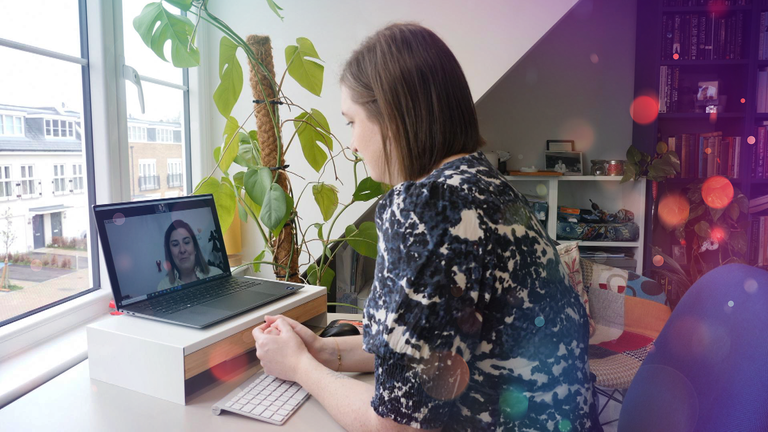
Data from Legacy of Lives found that less than 1% of people surveyed knew the funeral wishes of their loved ones, which Rebecca says can cause trauma, especially in the case of sudden death.
“I hate when I go see families and they don’t know what that person wanted. That’s tough on them at a traumatic time,” says Rachel, explaining why she has been so explicit in her funeral planning.
A party to plan your own death isn’t everyone’s idea of a good time, but after James Barrett’s dad died of lung cancer during COVID, he realised how important it was to know a person’s wishes.
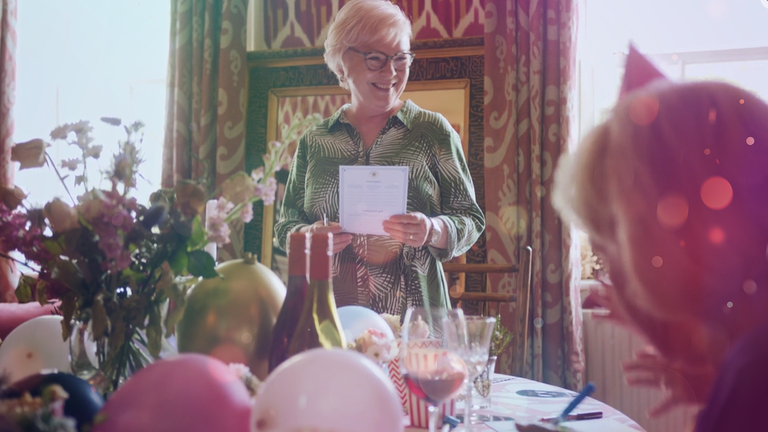
He developed the My Goodbyes app to help people plan, and host, their own death parties.
His mother was initially reluctant but agreed to participate. The party they hosted with her sisters ended up lasting two hours.
“They were arguing over which song they wanted, saying, you can’t have that, that’s my song,” James says, laughing.
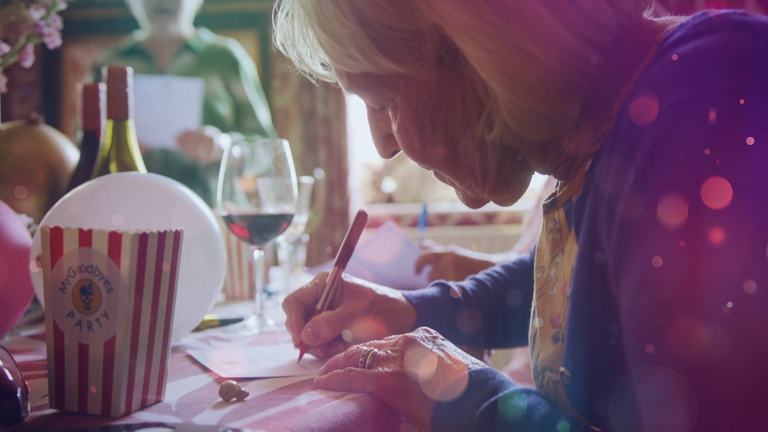
I empathised with James – losing dad was the most difficult experience of my life, and he only opened up about his own funeral in the weeks before. There was a constant fear of doing something he didn’t want before I ultimately realised there were no wrong choices when it came to planning his funeral.
While stepping into a coffin sounds like an odd form of therapy, I found it cathartic. My mind wandered from the profound: would I be as open as Rob and Rachel about my own death if I knew it was coming? To the mundane: would my husband remember to de-flea the cats when I was gone?
I’ve spent weeks immersed in discussions of death but I have never felt more alive. Because it was Rob, and his courage and strength, that left me with the most to think about.
